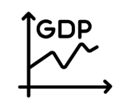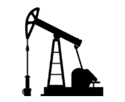TEAM Talks
 Positive momentum continued last week, with global stocks rising around 3%. In addition to encouraging news on trade—including a softening in auto tariffs and China waiving its 125% tariffs on some US products—markets were buoyed by strong earnings from Microsoft and Meta. For Apple, however, higher exposure to tariffs has made forecasting beyond June increasingly difficult. Although the company is now sourcing most of its products from India and Vietnam, where tariffs are lower than in China, it expects second-quarter costs to rise by $900 million.
Positive momentum continued last week, with global stocks rising around 3%. In addition to encouraging news on trade—including a softening in auto tariffs and China waiving its 125% tariffs on some US products—markets were buoyed by strong earnings from Microsoft and Meta. For Apple, however, higher exposure to tariffs has made forecasting beyond June increasingly difficult. Although the company is now sourcing most of its products from India and Vietnam, where tariffs are lower than in China, it expects second-quarter costs to rise by $900 million.
 Eurozone GDP for the first quarter was surprisingly strong mainly led by Spain, Italy and Ireland. The German economy also benefited from higher net exports in anticipation of US tariffs. Unfortunately, this recent strength is likely to be short-lived. Meanwhile, US GDP declined for the first time in three years—the main reason being (contrary to the trend observed in Europe) that importers bought as much as they could to avoid tariffs. While this trend may extend into the second quarter—as most tariffs haven’t kicked in yet—economic activity will ultimately depend on jobs and consumer spending.
Eurozone GDP for the first quarter was surprisingly strong mainly led by Spain, Italy and Ireland. The German economy also benefited from higher net exports in anticipation of US tariffs. Unfortunately, this recent strength is likely to be short-lived. Meanwhile, US GDP declined for the first time in three years—the main reason being (contrary to the trend observed in Europe) that importers bought as much as they could to avoid tariffs. While this trend may extend into the second quarter—as most tariffs haven’t kicked in yet—economic activity will ultimately depend on jobs and consumer spending.
 ‘Lack of visibility’ has been a recurring theme in the ongoing earnings season. Despite the recent market rally, the “real economy” has started to show some cracks. About 40 companies—including some in the auto industry—have pulled or cut their forecasts, while companies like UPS are planning to cut 20,000 jobs. Market sentiment may have recovered, but the impact on consumer and business confidence may take some time to repair. When consumers spend less, and companies delay investment decisions, the economy starts to weaken—but often this is only reflected with a lag.
‘Lack of visibility’ has been a recurring theme in the ongoing earnings season. Despite the recent market rally, the “real economy” has started to show some cracks. About 40 companies—including some in the auto industry—have pulled or cut their forecasts, while companies like UPS are planning to cut 20,000 jobs. Market sentiment may have recovered, but the impact on consumer and business confidence may take some time to repair. When consumers spend less, and companies delay investment decisions, the economy starts to weaken—but often this is only reflected with a lag.
 The euro zone may be enjoying a ‘mini honeymoon period’—driven by the promise of larger fiscal spending, positive capital flows coming out of the US, better than expected GDP growth, and a strong euro which has surged nearly 10% since early March. However, this recent trend may present a headwind for the rest of 2025 as the combo of US tariffs and a strong euro will make exports a lot less competitive—hardly good news for an export-heavy economy. In addition, Chinese exports may be diverted toward Europe—since US companies may avoid or delay the purchase of Chinese products. Overall, this may undo some of the recent euro strength and support clients’ overseas equity exposure.
The euro zone may be enjoying a ‘mini honeymoon period’—driven by the promise of larger fiscal spending, positive capital flows coming out of the US, better than expected GDP growth, and a strong euro which has surged nearly 10% since early March. However, this recent trend may present a headwind for the rest of 2025 as the combo of US tariffs and a strong euro will make exports a lot less competitive—hardly good news for an export-heavy economy. In addition, Chinese exports may be diverted toward Europe—since US companies may avoid or delay the purchase of Chinese products. Overall, this may undo some of the recent euro strength and support clients’ overseas equity exposure.
 The economic uncertainty induced by tariffs has continued to put pressure on the oil price, which slid a further 8% last week. To make things worse, OPEC+ surprised markets over the weekend with an aggressive supply increase for June. The cartel had pledged to increase supply by 2.2 million barrels per day over an 18-month period. However, after only three months, additional daily production is almost halfway there. The Saudis won’t be able to balance their fiscal budget at current prices, but they’re willing to suffer the consequences of a “price war” designed to punish members that don’t stick to their targets. 2025 seems to be the year of “self-inflicted short-term pain, in exchange for long-term gain”.
The economic uncertainty induced by tariffs has continued to put pressure on the oil price, which slid a further 8% last week. To make things worse, OPEC+ surprised markets over the weekend with an aggressive supply increase for June. The cartel had pledged to increase supply by 2.2 million barrels per day over an 18-month period. However, after only three months, additional daily production is almost halfway there. The Saudis won’t be able to balance their fiscal budget at current prices, but they’re willing to suffer the consequences of a “price war” designed to punish members that don’t stick to their targets. 2025 seems to be the year of “self-inflicted short-term pain, in exchange for long-term gain”.
